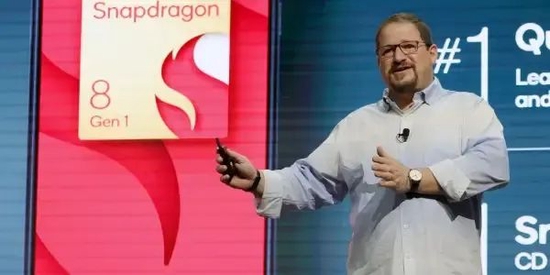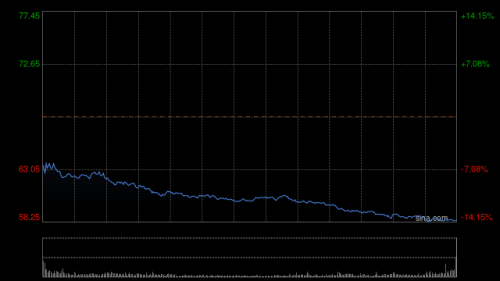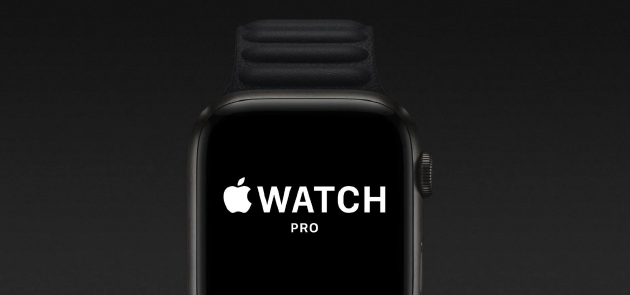your current location is:Home > Finance > NewsletterHomeNewsletter
ARM's "hand tearing" of Qualcomm is far-reaching: Qualcomm faces uncertainty and open source alternatives receive more attention

ARM is initiating a lawsuit against Qualcomm, which has brought the two chip companies with the highest market capitalization into direct conflict and caused uncertainty about the future of the partnership between the two companies.
On Wednesday, local time, ARM filed a lawsuit in the U.S. District Court of Delaware. ARM is currently at a critical juncture, as its parent company SoftBank Group wants to list ARM on the public market as soon as possible. Earlier, SoftBank's sale of ARM to Nvidia was unsuccessful after failing to pass regulatory scrutiny.
The lawsuit also threatens Qualcomm's expansion plans. At the heart of the lawsuit is a processor designed by Nuiva. Qualcomm hopes to use Nuvia's technology to compete more directly with Apple's iPhone and Mac processors, and even break into the server market. The server processor market is huge, but is currently dominated by Intel and AMD. Nuvia was founded by a former Apple chip designer, which Qualcomm bought in 2021 for $1.4 billion. Qualcomm's current Snapdragon processor for the smartphone market is also based on the ARM architecture.
In the lawsuit, ARM seeks damages and requires Qualcomm to destroy information and hardware acquired from Nuvia, including chips, die, packaging and promotional materials. At issue is whether Nuvia has the right to use the ARM instruction set to develop chips after the acquisition. The ARM instruction set is the core of ARM intellectual property, and its origins can be traced back to 1985. The ARM instruction set outlines how a chip performs basic functions, such as accessing memory and basic operations.
The rise of ARM
Chips based on ARM designs have been on the rise in recent years, largely due to their higher energy efficiency compared to x86 chips made by Intel and AMD. In 2021, more than 29 billion chips based on ARM designs will be shipped, including the processor chips used in Apple's iPhone, Mac and iPad.
Companies such as Apple obtain the authorization of the ARM instruction set from ARM, and then design their own processor circuits to implement the ARM instruction set. Other companies, such as Qualcomm in the past, will also purchase licenses for complete processor core designs from ARM, namely ARM Cortex. In 2021, ARM reported sales from licensing and royalties of $2.7 billion.
The lawsuit also shows conflict between different businesses within ARM. On the one hand, ARM provides other chip design companies with the underlying intellectual property, that is, the ARM instruction set, and on the other hand, it also provides its own processor design. There is a competitive relationship between the two. Arm said last year that it viewed Qualcomm as a competitor and that licensing of processor architectures to Qualcomm threatened Arm's own processor design business.
Litigation around intellectual property and contracts is common in the chip industry. However, the lawsuit between ARM and Qualcomm is very special and will involve the design of the chips at the heart of almost every smartphone in the world. This could have major implications for chip industry startups and could open up a new path for adopting open source solutions to replace ARM technology.
Qualcomm's general counsel, Ann Chaplin, said in the announcement that the dispute was a departure from a "long, successful partnership." "ARM has no right to attempt to interfere with Qualcomm's or Nuvia's innovation, whether contractually or otherwise. ARM's lawsuit ignores the fact that Qualcomm has extensive, well-established licensing rights on its custom-designed CPUs, and we have Confidence that these clearances will be confirmed."
At the same time, ARM said in the announcement that the company "has no choice but to file lawsuits against Qualcomm and Nuvia to protect our intellectual property and business, and to ensure that customers have access to approved products based on ARM designs." .
Qualcomm's Nuvia strategy
Qualcomm bought Nuvia because Qualcomm hopes that its self-designed chips will bring better performance than the off-the-shelf processor designs provided by ARM, so that it can compete with Apple's self-designed and more efficient chips based on ARM. Nuvia is a company founded by former Apple and Google engineers. The company develops server chips with custom cores after licensing the ARM architecture. The company also previously had access to ARM's processor core designs.
After the acquisition, Qualcomm regards Nuvia as the core of its smartphone and PC strategy, and plans to use the processor cores designed by the company to develop notebook processors, which will be commercially available as early as 2023 to compete with Apple's M-series processors . According to media reports, Qualcomm is also introducing Nuvia-based cloud computing processors to cloud computing providers such as Amazon Web Services.
ARM said in the lawsuit that the architecture license Nuvia received was not transferred to Qualcomm during the Qualcomm acquisition. ARM believes that Qualcomm has the architectural license, but the purchase and use of Nuvia's customized core design requires ARM's consent. In addition, ARM terminated its license to Nuvia in March this year.
If ARM's view is recognized by the court, Qualcomm's overall chip strategy will face great uncertainty. However, Qualcomm still has an alternative route. Karl Freund, founder and analyst at Cambrian AI Research, estimates that Qualcomm may try to use the RISC-V architecture, an open-source alternative to the ARM instruction set.
ARM also told regulators in December that "the momentum of RISC-V is accelerating" and that established vendors are increasingly using RISC-V. Some startups are developing CPU cores based on RISC-V, but smartphones have not yet adopted such chips on a large scale, and still use ARM chips.
However, ARM is strengthening intellectual property protection in the face of long-term partners, an approach that may prompt companies that have developed custom ARM cores in the past to reconsider open source alternatives.
related articles
Article Comments (0)
- This article has not received comments yet, hurry up and grab the first frame~












